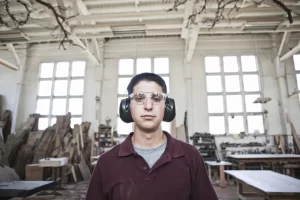
Are you worried about hearing loss later in life? While there isn’t much you can do to prevent natural, age-related hearing loss, there are some things you can do right now to protect your hearing and work on being a better listener.
Protect Your Ears
To keep your hearing intact, you need to be mindful of the volume level of the sounds you encounter. Especially if you work a job where you are around loud equipment, you should be wearing ear plugs. When you know you will be exposed to loud sounds, such as a concert, it’s best to wear ear plugs too. Be mindful of how loud you play your television and your music. Keep earbuds turned down low.
Quit Smoking
You already know that smoking has a whole list of negative consequences, but did you know that smoking can double your risk of hearing loss? Nicotine and carbon monoxide impact blood and oxygen flow—which is crucial to keeping cells in your ear healthy—nicotine can cause tinnitus, and smoke can mess with your Eustachian tube and irritate your middle ear.
Exercise Your Brain
Who knew that exercise could help with your hearing? While your ears are the ones that do the detection of sounds, it’s actually your brain that interprets what the sounds mean. Exercising your brain can improve your listening skills. The next time you go for a stroll through the woods, tune in to what nature sounds you hear. Really focus on tuning in. Later, write down what you hear. Keep practicing that; it will help you hone in on your surroundings. Another way to exercise your brain and improve your hearing is by practicing listening to conversations or someone reading aloud in a quiet room versus a loud one. Recall what you hear in each setting.
Get Your Hearing Checked
Getting your hearing checked is essential to preventing hearing loss from getting worse. If you suspect you have hearing loss, the sooner it is detected, the better. It’s best to have it checked yearly.
To set up an appointment at our office, visit us.